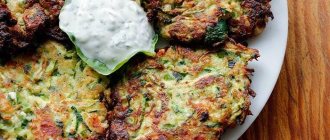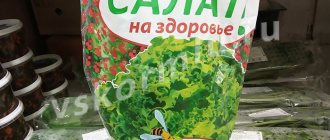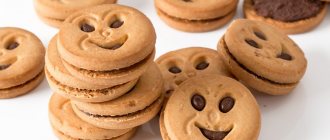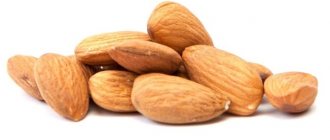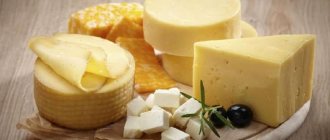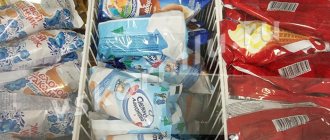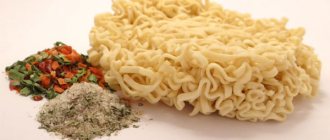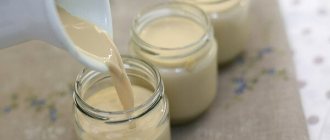Those who like to crack unhulled seeds claim that it gives them special pleasure. There is a hypothesis that such people are prone to aggression and thus try to suppress it. But the facts tell a different story: sunflower seeds are a storehouse of nutrients and are useful for everyone, including breastfeeding women.
Photo: Depositphotos.com. Author: Yaruta.
Valuable composition
You can eat the seeds while breastfeeding (BF). Experts advise mothers experiencing vitamin and mineral deficiency to eat a handful of seeds every day.
Just 100 g per day will saturate the female body with nutrients:
- mineral elements: iron, zinc, selenium, copper, magnesium, potassium, calcium, phosphorus;
- vitamins: A, D, E, B3, B5, B6;
- proteins;
- fatty acid.
Sunflower seeds contain substances necessary for lactating women and infants:
- Amino acids (AA) - will prevent blood vessels from becoming clogged, support the functioning of the heart muscle, contribute to the thickening of cell membranes, normalize metabolism, and strengthen the immune system.
- Fats and dietary fiber will improve the quality of breast milk, lower blood cholesterol levels, and improve appetite. Thanks to the large amount of fiber, they will have a mild laxative effect, cleanse the body of accumulated toxins, and normalize the functioning of the duodenum.
- Iodine, potassium, copper, fluorine, monosaccharides, dietary fiber will support the activity of the cardiovascular system, which experiences serious stress during pregnancy and breastfeeding.
- Magnesium - will prevent and reduce symptoms of neuromuscular and mental disorders, disruptions in the functioning of the heart and digestive tract.
- Vitamin B1 (thiamine) - will help cope with excessive nervousness, mitigate the effects of postpartum depression and long-term stress. Indispensable during the period of hormonal changes.
- Vitamins A (retinol), E (tocopherol) - will exhibit anti-aging properties, improve skin condition, smooth out fine wrinkles, saturate tissues with oxygen, and activate metabolism.
- Calcium, phosphorus, vitamin D will help strengthen bones and teeth.
- Zinc - will prevent the appearance of acne and dandruff, save hair from dullness, stiffness and excessive hair loss, and give the face an attractive glow.
A large piece of black bread is equivalent to a handful of sunflower grains, because 100 g of seeds contain 6 times more magnesium: 300 mg.
Fact. In terms of the amount of calcium (367 mg per 100 g), sunflower seeds will give a head start to cottage cheese (149 mg), milk (125 mg), and kefir (125 mg).
When? Doctors advise nursing mothers not to rush into introducing seeds into their diet. It is better to wait 2-3 months after giving birth. Otherwise, the baby increases the risk of developing diathesis.
Safe norm for a nursing woman: 30–50 nucleoli per day.
How many seeds can you eat during breastfeeding?
Even the healthiest product can cause unpleasant consequences if not taken in moderation. For the first time, it is recommended to consume no more than thirty grams of the product. For two days it is necessary to monitor the child’s reaction to the treat. In the absence of intolerance, the permissible norm is eighty grams per day. You should not drink the seeds with sweet drinks. This combination will cause increased gas formation in the baby and abdominal pain.
Raw, dried seeds are considered the most useful. It should be consumed between meals, divided into several doses. The optimal time to eat is immediately after feeding. The daily intake of sesame seeds is a tablespoon. This amount is enough to enrich the milk with valuable vitamins and benefit the mother.
We recommend reading: Rice during breastfeeding
Precautionary measures
Contraindications
Diseases for which a breastfeeding woman should not eat seeds:
- diseases of the urinary system (cholelithiasis, etc.);
- ulcer and gastritis.
Allergy risk
Sunflower seeds are a strong allergen. Although they are less dangerous than pumpkin seeds. Therefore, their introduction into the diet of a nursing mother should follow the classical scheme: on the first day, you can eat a small amount (up to 20 g), while monitoring the baby’s condition.
The reaction may not appear immediately, but after a few days. But most often, the baby’s body reacts quickly: within a few hours or even minutes.
The individual characteristics of some infants do not allow women to use this product until the end of the breastfeeding period.
Sunflower seeds are contraindicated for a nursing mother if she and/or the other parent are diagnosed with:
- allergies to pollen: dandelion, sunflower, wormwood;
- negative reaction to foods: honey, vegetable oil, melons, potatoes, chamomile.
Other side effects
Due to their high calorie content (500–600 kcal per 100 g), seeds can cause weight gain. Therefore, they are not recommended for women prone to obesity.
Chewing seeds with teeth damages tooth enamel: weakens it and makes it more sensitive. And regular mechanical impact leads to the formation of chips and microscopic cracks on the surface.
Advice. Do you want to maintain a healthy smile? Peel the seeds with your hands: well-calcined ones, just lightly squeeze them with your fingers until they click.
Dangers of Overconsumption
Gnawing on seeds daily in large quantities is not the best idea for a new mother. There are serious health risks:
- An overdose of phosphorus, which sunflower seeds are rich in, can lead to kidney damage.
- Selenosis is a condition caused by an excess of toxic selenium in the body. Symptoms of this condition: irritability and chronic fatigue.
- Drying of the skin, appearance of cracks in particularly sensitive areas.
Seeds during breastfeeding: is it possible or not, Komarovsky, reviews
One of the favorite delicacies of many women are sunflower kernels and pumpkin seeds, which have many beneficial properties for the adult body. Let's try to figure out whether a nursing mother can eat sunflower and pumpkin seeds without harming the baby's health.
Daily intake and rules of use
Breastfeeding specialists and pediatricians advise women to eat no more than half a glass (300 ml) of sunflower and pumpkin seeds per day during breastfeeding.
This amount contains the daily dose of all vitamins and amino acids and does not harm the health of the mother and child.
In order for the treat to be beneficial during breastfeeding, the following recommendations must be followed:
- Buy the product in original packaging; seeds purchased in bulk may be treated with pesticides and other harmful substances.
- Give preference to pumpkin seeds.
- Avoid additives such as salt and spices.
- Before use, rinse the raw seeds thoroughly in running water and cook them (lightly dry them in a hot frying pan).
- Do not chew sunflower and pumpkin seeds along with the peel.
- Completely exclude treats from the diet until the baby is at least one month old (in case of severe colic and a tendency to allergies - three months).
- Introduce the product into the daily menu gradually, starting with several seeds per day.
- If the child does not have a negative reaction, it is allowed to increase the daily intake of sunflower kernels to half a glass.
Can a nursing mother eat roasted sunflower seeds? Excessive heat treatment leads to the release of excess vegetable fat and the loss of many beneficial qualities. Therefore, after frying, the product can be consumed in limited quantities: no more than 50 g per week.
You should not get carried away with kozinaki and similar sweet treats containing sunflower kernels. High calorie content and high sugar content can negatively affect the well-being of mother and baby.
Beneficial properties of seeds during lactation
Sunflower seeds contain many valuable components: amino acids, vegetable proteins, trace elements and minerals (potassium, phosphorus, copper, zinc, selenium, cobalt), vitamins D, B, A, E.
Some of the beneficial substances penetrate into breast milk, significantly enriching its composition and having a beneficial effect on the health and development of the child.
Sunflower kernels provide particular benefits during breastfeeding:
- act as a natural antidepressant, helping to cope with tearfulness, anxiety and fatigue in the first weeks of motherhood;
- reduce cholesterol levels and increase the strength of vessel walls;
- normalize intestinal function, eliminate chronic constipation that plagues many women after childbirth;
- restore the elasticity of the muscle tissue of the pelvic organs;
- contribute to the complete absorption of calcium necessary for the baby and mother;
- improve the condition of skin, hair and nails suffering from a lack of vitamins and hormonal changes during pregnancy;
- strengthen tooth enamel and gums;
- increase appetite.
Harm of seeds during breastfeeding
According to recent studies, the prevailing opinion that eating sunflower grains increases the volume and fat content of breast milk is another myth. Excessive consumption of seeds during lactation can harm the health of the mother and baby.
Danger for a nursing mother
The product of plant origin is high in calories and is not recommended for women who are overweight.
100 grams of raw kernels contain almost one third of the calories corresponding to the daily requirement of an adult.
The fatty acids and oils they contain in significant concentrations can provoke an exacerbation of chronic diseases of the liver and gastrointestinal tract in a nursing mother.
Eating sunflower seeds with added salt contributes to fluid retention in the body and the development of edema. Other additives can cause allergies, stomach pain, and heartburn in women.
Particularly dangerous is the habit of gnawing seeds, spitting out the husks. Bacteria contained on the surface of the peel often lead to serious intestinal disorders; treatment will require long-term use of antibiotics and other drugs that can jeopardize breastfeeding.
Danger for baby
Despite the large amount of vitamins and microelements, sunflower seeds during breastfeeding can negatively affect a child’s health, especially in the first month of life, when his immature digestive tract adapts to environmental conditions. A high concentration of fatty acids and essential oils provokes the development of the following pathologies and complications:
- allergic reactions in the form of rash, redness and peeling of the skin;
- increased colic and regurgitation;
- increased gas formation;
- intestinal dysfunction (constipation, diarrhea).
Fried, salted and grains with various additives, especially of synthetic origin, are most harmful to the health of infants. Often their excessive consumption during feeding significantly worsens the taste of milk, as a result the baby may even refuse natural nutrition.
Pumpkin seeds - an alternative to sunflowers
According to research, pumpkin seeds contain a large amount of zinc and other valuable microelements and have a pronounced antihelminthic effect.
Unlike sunflower grains, the kernels do not cause an allergic reaction, do not irritate the intestinal mucosa and do not have a negative effect on the digestive tract of the newborn.
Pediatricians recommend that nursing mothers consume pumpkin seeds as an alternative to sunflower seeds, which are more dangerous for babies.
Ways to get rid of addiction
Many women during breastfeeding note their dependence on sunflower seeds. To get rid of an unpleasant and bad habit, you need to:
- gradually reduce the amount of product consumed, preferring pumpkin seeds and other healthy analogues (walnuts, dried fruits, dried apples);
- do not eat sunflower kernels at least 2 hours before feeding;
- if the treat is used as an antidepressant, drink decoctions of mint, lemon balm and sedatives allowed during breastfeeding.
In case of an urgent need for the product, a nursing mother should reconsider her diet: often women who have recently given birth are deficient in certain vitamins and other useful elements. The daily menu must include nutritious and high-calorie dishes based on cereals, lean meat and vegetables.
You should not completely abandon the product during lactation. Its consumption in small quantities brings benefits that significantly outweigh the possible harm to the mother and baby.
Reviews from mothers with breastfeeding
Source: https://KrohaPuzz.ru/grudnoe-vskarmlivanie/semechki-kormyashhej-mame.html
How to choose?
Attention! Unpeeled seeds are much healthier. When storing kernels without shells, some of the nutrients are lost.
For loose ones:
- Buy only from trusted sellers. Purchasing from hand does not make it possible to check the date of collection, manufacturer, or the results of sanitary control. The consequences of consuming low-quality nucleoli are severe intestinal upset for mother and child.
- Be sure to try a couple of them. The seeds should not taste rancid, but should not look brown or dark yellow.
- Look into the general bag. A large amount of garbage or the smell of mold is not a good idea for purchasing.
For packaged ones: make sure that the expiration date has not expired, the pack is intact, and you know the manufacturer.
Reference. Most often, seeds are packaged in thick polypropylene bags, but vacuum packaging and even transparent ones can be found on sale. The latter are no worse than the usual ones, but it is advisable to store them in a dark place. This will extend the shelf life to 7-8 months.
We conducted a small independent study of the quality of packaged unhulled seeds that we were able to find in hypermarkets. Most manufacturers were not up to the task. Too much rot was noticed in the products of Stanichny, Babkiny Seeds, and Ciko. Only products from the more expensive segment with a mark on the packaging: “Elite” or “Premium” performed well. Draw your own conclusions.
Salty
More often, addiction develops with regular consumption of salted seeds, which it is better to avoid during breastfeeding.
Disadvantages of salt:
- It provokes excess appetite, and it becomes difficult to keep track of the portion.
- When passed into breast milk, it changes its taste. The child, feeling the changes, may refuse to breastfeed.
Recommendation. If the urge to chew seeds has become too strong, replace them with another product, and the process of husking with some pleasant activity.
White seeds
White sunflower seeds are brought from Turkey. They are larger than black ones, easier to peel, and have nutritional properties similar to nuts. Therefore, they can be alternated.
Rich in unsaturated fatty acids: omega-6 (improves metabolism and protein absorption), omega-9 (prevents the development of diabetes and the formation of cholesterol plaques on the walls of blood vessels).
Magnesium and zinc in white seeds are minerals that white seeds are especially generous with, calm the nervous system, relieve insomnia, and stimulate the functioning of the kidneys and brain.
Other types of seeds
- Pumpkin. They contain the most zinc, which is beneficial for hair, skin, reproductive organs, and vision. Pumpkin seeds do not cause irritation to the intestinal mucosa and do not clog the gastrointestinal tract.
- Linen. The seeds contain: B vitamins, magnesium, copper, sodium, potassium, phosphorus, calcium, zinc, iron, selenium. They have anti-aging and anti-inflammatory properties, promote wound healing, and have a positive effect on the condition of nails and hair. They participate in the processing of fats and carbohydrates, normalize blood glucose levels, cleanse the circulatory system, and increase blood circulation during exercise.
- Sesame. Dietary product. Reduces cholesterol, cleanses blood vessels, prevents you from gaining weight, strengthens nails, teeth and bones. A powerful immunomodulator that protects the female body from harmful microorganisms better than many drugs.
- Chia. Due to the high concentration of protein and omega-3 fatty acids, calcium and magnesium, these seeds have general strengthening and rejuvenating properties. They normalize metabolism, give a long-lasting feeling of fullness, and therefore promote healthy weight loss.
During breastfeeding, the woman's condition affects the child. A cup of weak green tea and a small handful of seeds will help a nursing mother relax and relieve the burden of daily worries.
Is it possible to have seeds while breastfeeding (pumpkin, sunflower)?
Everyone loves seeds. They are tasty and, according to nutritionists, healthy. The very process of gnawing and extracting the treasured grain is interesting and more and more exciting. I want to gnaw and gnaw and gnaw. This can even lead to addiction.
The habit of gnawing seeds has a national character. If in America it is customary to chew popcorn while watching a movie, then the average family from Russia chews sunflower seeds while watching TV.
Is it possible to eat seeds in public places? Is this food or just a treat?
What is good and what is bad about this and how to treat seeds for guards? Is it possible to gnaw on treasured grains while caring for a child?
The article contains answers to all these questions.
The word “seeds” traditionally refers to sunflower seeds.
Is it possible to eat seeds while breastfeeding?
The skins of the seeds are often dirty and poorly processed. In 90% of cases, this concerns seeds that are sold on granny corners.
Seeds sold in stores (packaged in bags) are more sterile. They can be safely used.
The seeds can be eaten by a young mother during breastfeeding. Just follow two simple rules:
- The product must be clean.
- When breastfeeding, you need to start consuming small portions to make sure that your baby is not allergic to such food.
In order not to worry about cleanliness and calmly gnaw on purchased seeds, you can simply wash them and then lightly fry them in a frying pan or dry them in the oven.
In the first month
In the first month of life, the child’s gastrointestinal tract is still far from perfect. Therefore, approach the introduction of new products with caution. During this period, it is better to play it safe. Immediately after giving birth, you should not pounce on food and sweep away all the food that catches your eye. Try not to let the food harm your baby.
In the first month, start consuming seeds carefully, in small portions, and monitor the newborn’s reaction.
Correct introduction to the diet and consumption rate
Correct introduction of each new product to a nursing mother’s menu during breastfeeding is the basis for healthy nutrition for an infant.
If a woman wants to diversify her table with sunflower grains, sesame or pumpkin seeds while breastfeeding, she should start with 20 g per day. Gradually every day you can increase the portion.
Flax seed should be introduced when starting the consumption of a decoction or tincture of grains, with 10 g per day.
Eat any product during breastfeeding in moderation. The same applies to seeds. Half a glass of pumpkin or sunflower seeds a day will be enough to provide both pleasure and benefit. Drink no more than one tablespoon of flax grain decoction per day to get the benefits and not harm the infant.
Take no more than one teaspoon of sesame seeds per day.
Doctors recommend consuming the seeds between meals for the mother, about two hours before breastfeeding the baby. This will prevent unwanted mixing of products.
Roasted sunflower seeds
It is not fried seeds that are more useful during breastfeeding, but well-dried ones. When frying, vitamins A, E and D are lost. On the other hand, when frying in a frying pan, the kernels are disinfected. All harmful elements are destroyed.
To find the “golden mean”, fry the grains very briefly over low heat.
To the question: “Is it possible to eat seeds while breastfeeding if they are heavily fried?”, you can safely answer: “No, under no circumstances!”
In order to preserve vitamins and disinfect the seeds, dry them in a frying pan for a short time.
Types of seeds
There are many types of seeds. Usually by seeds we mean sunflower grains. However, the seeds of many other plants are no less tasty and also provide benefits. Which of them are well received during breastfeeding, and which are contraindicated? Let's figure it out.
Sunflower
Sunflower grains, in addition to their pleasant taste, affect the body in the following ways:
- strengthens the cardiovascular system well;
- improve the functioning of the genitourinary organs;
- promote good condition of nails, hair, skin;
- promote lactation and increase the fat content of milk;
- improve the child’s mental and physical abilities due to the high content of vitamin D;
- help avoid depression due to vitamin A content.
Sunflower seeds will be a useful addition to the diet of a young mother while breastfeeding.
Effect on the body of mother and child
Seeds during breastfeeding benefit mother and baby. However, young mothers are concerned about the question: “Will they cause harm if they are used for a long time during breastfeeding?”
Benefit
We have already seen the benefits of sunflower, pumpkin, sesame and flax seeds. With their use, not only the mother receives a lot of vitamins, but the infant, through mother’s milk, also has access to many useful substances.
If you consume seeds in moderation while breastfeeding, lactation will improve, which is very important in the first year of a baby’s life.
The benefit of pumpkin seeds lies in their natural antihelminthic effect, which further increases their value.
The zinc, manganese, magnesium, calcium, fiber, amino acids and fatty acids, vitamins A, B, C, D and E contained in the kernels are beneficial for the baby and the mother.
Harm
The seeds can be harmful to the baby and mother if they are contaminated. This often happens with sunflower seeds, because during industrial harvesting with combines a lot of dust gets on them.
Seeds purchased by weight need to be washed and then dried in the oven.
You can fry only lightly, since frying produces harmful carcinogenic substances and kills a large number of beneficial substances.
According to production rules, grains packaged in bags must be washed before packaging. But is this rule followed? Check by rubbing the grains between your fingers. If your hands become dirty after this procedure, it is better to wash and dry the seeds as described above.
You should not buy peeled, peeled seeds. There are no more useful substances in such food. Also, do not eat salted seeds.
Young parents should not forget that seeds are high-calorie foods. If a mother is prone to obesity, it is worth considering seriously limiting herself in relation to this product during breastfeeding.
Breastfeeding experts insist on the introduction of any new product in a gradual and measured manner. This also applies to seeds.
Doctor Komarovsky's opinion
What does Dr. Komarovsky, respected by young mothers, think about adding seeds to the diet of a nursing woman?
The doctor does not give a direct answer to this question, however, he speaks out about the use of pumpkin seeds to get rid of worms. Komarovsky reminds that not all parasites are susceptible to death from pumpkin seeds, and that you need to eat too many seeds at one time to get rid of unwanted worms.
If a problem with worms is identified, it is logical to treat with medications, and use pumpkin grains in the diet as a preventive measure.
Doctors at the Komarovsky clinic speak positively about pumpkin seeds. In their opinion, they improve mood, improve the state of the nervous system, increase performance and fight fatigue. And this is important for mothers during breastfeeding.
Doctors also recommend including dishes with the addition of sunflower seeds in a nutritious breakfast for children over five years old. This is not proof of their usefulness for adults and infants.
If you have an addiction
Chewing seeds is bad. What is this connected with? Previously, representatives of the lower class, market traders, and villagers had the habit of gnawing seeds. With the development of culture, this habit is increasingly becoming a thing of the past. However, it is really possible to become addicted to such an innocent activity as eating seeds.
To avoid addiction, try to limit yourself and not get carried away with activities such as eating seeds. Everything is good in moderation. If you remember this, then you will not face any addiction.
But if you have already become a victim of a habit, you need to try to switch to something else, more harmless. By the way, pumpkin seeds are not as addictive as sunflower seeds. It might be worth switching to them.
Don't buy too many seeds at once.
Buy a daily portion of seeds every day and you simply won’t be able to eat more since you won’t have any more of them.
If you can’t keep your appetite within the daily norm, you should try self-hypnosis.
Thoughts have a powerful effect on us. By convincing yourself that excessive consumption of seeds is harmful to you and the health of your child, since he is breastfed, you can get rid of the bad habit.
If a child has a negative reaction to the seeds, their use should be stopped immediately.
Selection and storage
Like other food products, the healthiest grains are those that you grow in your own garden. This applies to pumpkin and sunflower seeds.
In other cases, there is a risk of encountering poor quality food. To reduce the risk, wash the seeds before eating and dry them in the oven.
Buy seeds in sealed containers. Choose the manufacturer especially carefully. The brand must be famous.
Seeds can be stored for up to 10 months. Since seeds are afraid of humidity, it should not exceed 75%. Storage temperature is room temperature.
When properly stored and prepared, zinc, manganese, magnesium and other beneficial substances are preserved. The fact that pumpkin grains are rich in zinc makes them even more attractive in the eyes of nutritionists.
Recipes
Healthy dishes with the addition of seeds will be very useful during the breastfeeding period.
Various edible seeds are used to add flavor and appeal to food.
Sunflower seeds taste like nuts. Cookies with sunflower seeds will take their rightful place on your family’s menu. You can read more about cookies in the article “What kind of cookies can a nursing mother have.”
New recipe - chicken breaded with pumpkin seeds. Chicken has long taken a strong position among nutritionists. This dish helps out both on holidays and on weekdays. So it's nice to find a new addition to a favorite dish. The taste and easy execution will make this recipe a favorite.
Granola or homemade muesli is a healthy and nutritious breakfast. Both adults and children love this dish. Especially apple granola.
Flaxseed porridge with dates will delight you and your family with a new taste. It is nutritious and useful during breastfeeding. For more information about the benefits of flax porridge for mothers and babies, read the article “Flax porridge during breastfeeding.”
Oatmeal, almond, and pumpkin milk diversify the dairy diet and add vitamins to traditional dishes.
Add seeds to your diet, try new dishes with the addition of seeds, use available sources of nutrients and vitamins. But remember that everything is good in moderation!
Source: https://vskormlu.ru/kormashaya-mama/pitanie/semechki-pri-gv


